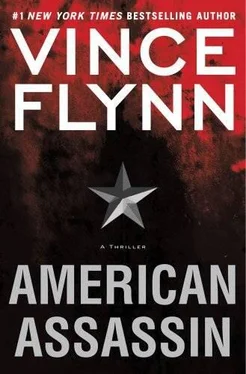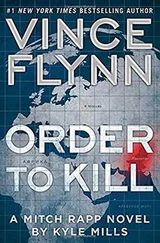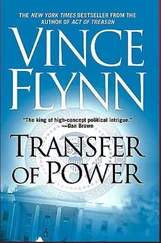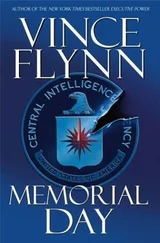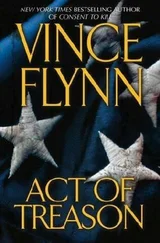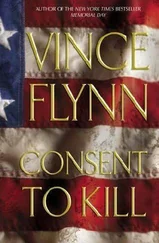“He’s up here somewhere,” he heard a voice in the hallway say.
“Who is it?” Sayyed asked.
“It’s me. I’ve been looking all over for you.”
Sayyed recognized Radih’s voice and lowered his gun. “I’m in here.”
Radih appeared in the doorway. Three other men were behind him. “Assef, you are not going to believe the news I bring you.” Radih clapped his hands together.
Sayyed looked for his watch, but couldn’t find it. “What time is it?”
“Nearly two in the morning. You must get up. I have amazing news.”
Sayyed sighed. He half rolled off the mattress, looking for his watch. He found it, strapped it on, and then grabbed his shirt. “It better be good. I need some sleep.”
“You will not be disappointed.”
Sayyed felt like crap. He needed water and then coffee and then some food, in that order, and then maybe he could think clearly. He motioned for Radih to get on with the story.
Radih told his men to leave and in a hushed voice said, “Do you remember an American who went by the name Bill Sherman?”
Did he remember him? The man had purportedly killed Sayyed’s predecessor while he was enjoying his breakfast one spring morning. “Of course.”
“My spies at the airport… one of them says he saw Sherman tonight.”
“At the airport?”
“Yes. He came in on a flight from Paris, along with another man.”
Sayyed was dubious. There had been rumors here and there that Sherman had been back to the city. In fact, anytime someone met his end at the hands of an assassin, Sherman’s name somehow became attached. “How can you be so sure? It has been many years since anyone has seen him.”
“My man says he has aged. His hair has gone gray, but the eyes”-Radih pointed to his own-“he said they are those same eyes. Eyes of the Devil. He said he remembers him as a very nasty man with many vices.”
Sayyed’s lips felt unusually parched. He found the jug of water that Samir had left in the corner and took a drink. Why would the Americans send Sherman to Beirut after all these years? The most obvious answer was in the basement of this very building. They wanted their agent back. But why send an assassin like Sherman? The man was a harbinger of death, not a negotiator. Turning back to Radih, he asked, “Did your spy happen to know where he was headed?”
With a self-satisfied grin, Radih said, “I put out the word yesterday, after our meeting. I told everyone to be on the lookout for anything suspicious. My people know how to do their jobs. They followed him and the other man to the Intercontinental.”
“And?”
“They had a drink at the bar, and he bought a bottle of Jack Daniel’s from the bartender and then got into a cab, one of ours. He had the cabble drop him off in front of a hotel on Daoura. After the cabbie was gone, they walked three blocks to a different hotel.”
“Which one?”
“The Mar Yousif Inn.”
“And he is there right now?”
“Yes. They got two rooms for one night. I just spoke to the manager. They are still there.”
“Are you sure?” Sayyed asked skeptically. “The Bill Sherman I remember would never allow himself to be followed.”
“My men are good. We have trained them to use radios. They have a system set up the airport. When they see someone who might be a fat target they follow him and pass the word to me. We then swoop in and grab them. I have men heading to the area now. There’s only one problem.”
“What?”
“The hotel is in Bourj Hammoud.”
Sayyed needed to wake up. Normally he would never ask such a stupid question. The Sherman he remembered was tight with the Armenians. This would have to be handled delicately. “If we get in a gun battle in Bourj Hammoud, we might not make it out alive.”
Radih did not disagree. “We can wait and follow him. If he leaves the Bourj we can grab him.”
They had been lucky enough to stumble across him. That luck would not hold with a man like Sherman. He would see them sooner rather than later, and then he would kill whoever it was who was watching him and disappear. “Tell your men to hold.”
Radih seemed relieved. “And then what?”
“The chief of police owes me a favor. They can operate in Bourj Hammoud without too much trouble.”
This time Radih shook his head. “I’m not so sure.”
“Normally you would be correct, but there are some things that you are unaware of. Some influential Armenians owe the chief a few favors. As long as we aren’t going in to take one of their own, we will be fine.”
“If a single shot is fired…” Radih winced at the thought.
Sayyed finished it for him. “The entire neighborhood could erupt.” Such was the reality of Beirut. The city was always one gun battle away from plunging back into chaos and civil war.
WHEN he hit the midway point of the last run of stairs that led to the small lobby, Hurley noticed the man sitting in the chair with his back to the door. It was probably nothing, but then again Hurley had survived all these years by noticing the little things. If enough of them piled up, they usually led to trouble. There was a couch and three chairs. The man was in the chair the farthest to Hurley’s left-the same seat he would have chosen if he was to keep an eye on any guests coming down. Hurley watched him intently as he crossed the red-tiled floor. The man slowly closed his eyes and went back to dozing. Rather than head straight out, Hurley stopped at the desk. No one was there. He looked through the open door of the small office and couldn’t see anyone, but could hear a TV. Looking back over his shoulder, he checked to make sure the fat man in the chair was still in his position. He had his eyes closed again and appeared to be dozing. Hurley checked him off his list.
The pay phone was behind the man in a quaint, claustrophobic alcove. Rather than use it, Hurley decided to head outside and take in the lay of the land. When he reached the front door he paused to see if there were any goons loitering. If there were, he would head back up to the room, grab Richards, and they would head to the roof. They could make it two buildings in either direction by hopping from one roof to the next, and then use any of the adjoining apartment buildings to make their escape. The sidewalk in front of the hotel was empty, so he stepped outside, tapped out a Camel, and fired it up. He casually looked up and down the block. He counted eight cars that he had seen the night before and one new one, and it was only a small two-door hatchback. Nothing to be alarmed about.
Right or left? It was funny how often that’s what it came down to-a flip of the coin. He chose left. It was slightly uphill, not that it mattered, but he remembered seeing a small market in that direction the night before and it had a pay phone out front. He flipped the butt of his heater into the street to join the menagerie of discarded brands and started moving. It was before eight and the street wasn’t busy. It was empty, in fact. He saw two cars drive through the next intersection, moving from right to left, and then a man with a briefcase hustled across the street. Hurley couldn’t remember if it was normal or abnormal for a city like Beirut to be so slow at this time. Every city had a different pulse. Some were bustling by seven, but most Mediterranean cities were a little slower-paced. Especially one that had endured as much trauma as this one.
There was a boy standing in front of the market. Hurley guessed him to be about eight. As Hurley approached, the boy held out a paper and started giving him his pitch. Hurley smiled at him. He didn’t care where he was; you had to admire a kid who got his ass out of bed to sell something. He reached into his pocket to grab some money, and right about the time he had a firm grip on his wallet alarm bells started going off. There was movement to his left, from the market, two or three car engines turned over, and then there were footfalls. Hurley looked left, then right, and then noticed that the cute little kid was backpedaling to get out of the way.
Читать дальше
